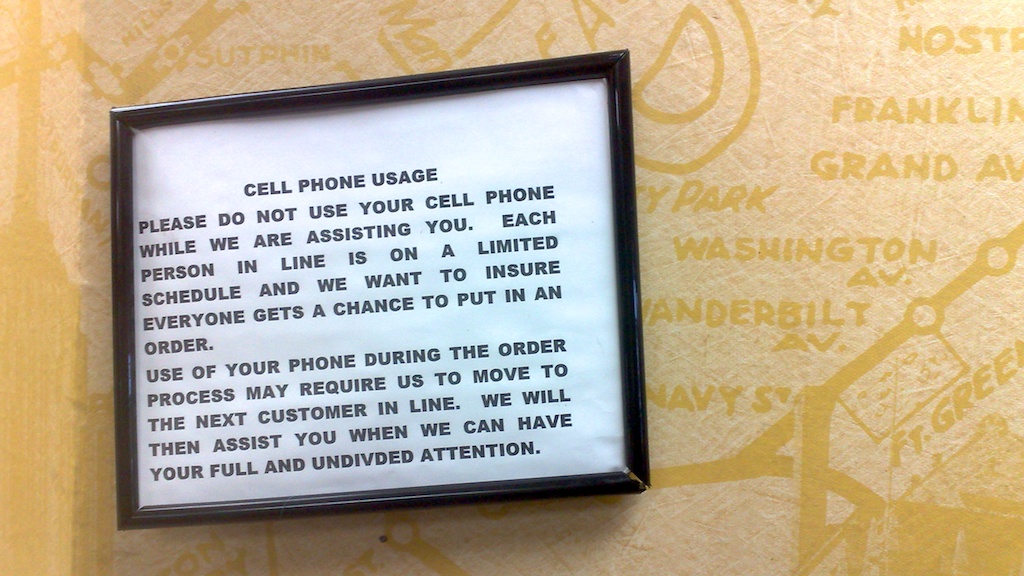Last week, I highlighted some points from Professor Mor Harchol-Balter’s talk. This week, I would like to focus on a different point she made related to the academia-industry divide.
Continue reading “More about Professor Mor Harchol-Balter's talk”

Musings of a happy scientist
Last week, I highlighted some points from Professor Mor Harchol-Balter’s talk. This week, I would like to focus on a different point she made related to the academia-industry divide.
Continue reading “More about Professor Mor Harchol-Balter's talk”
Last week, Professor Mor Harchol-Balter visited us at the University of Toronto to deliver a talk as part of the Department of Computer Science’s Distinguished Lecture Series. During her excellent talk, she showed how intuition often fails us when scaling systems to meet a given load, even with perfect information of load patterns, whereby the amount of computers is over-estimated (thereby increasing energy use due to over-provisioning) and presented some results that will be appearing in conferences soon with experimental results related to power saving policies in data centres. One of the examples she gave of intuition breaking down is, given n computers serving r requests per unit time, load l, and a response time of t per request, how many computers are required to maintain response time t and load l if r increases by, say, a factor of one hundred?
During her talk, Professor Harchol-Balter mentioned that banks refuse to share computing power with anyone else. This seemed like a missed opportunity for energy savings in the form of virtualization, although, in the short term economic analysis, millions of dollars of power saved is chump change for these institutions. I later asked her about this and she conceded that they’d be willing to share their servers with other instances of their own software, given certain constraints. Which brings us to a continuation of my previous depth paper excerpt blog post Energy-proportional computing.
Continue reading “Professor Mor Harchol-Balter talk & Consolidating load in data centres”
Toronto’s new mayor, set of councillors, and school board trustees will determined tomorrow (or it may already have been determined if enough people voted in advance). Though I’ll be voting, I try to stay out of politics as much as possible. However, avoiding politics completely is almost impossible as practically everything is political including how many courses are required to complete an undergraduate degree to whether taxes are levied on bread. No, whenever there are groups of people, politics are unavoidable, be they household politics or diplomatic channels between nations.
On my way back from Boston, the bus I was taking had a food stop in Syracuse. My two choices for hot food were Dunkin’ Donuts and Subway. Having tried an all-day breakfast item from Dunk’s on the way to Boston due to a long line-up at Subway and been non-plussed, I quickly made my way to the end of the queue for Subway. There, I was greeted by a plaque that seemed to capture several things that seem to be wrong about society today.

Computers have dominated humans at chess for a number of years. They’re getting better, too (although they are still completely reliant on us squishy humans for improvements). But however good they are right now, we’re not completely licked, yet, as I realized while reminiscing about one of the extracurricular events I participated in during high school.
The Paperclip Chronicles document adventures involving the humble paperclip, a piece of office stationery so versatile that it has become a staple (no pun intended) of my day-pack.
It turns out that paperclips are handy for removing the pits from cherries. Who’da thunkit? Just dig the paperclip into the middle of the cherry and pry out the pit. Learned this trick at Hot Yam! for our July 15th meal from Hannah Sobel. Remember to sanitize the paperclip, first!
About a month ago, I switched cellular service providers from Rogers to WIND Mobile. Aside from the abysmal quality of the phone or more precisely, the Android operating system, I purchased for use on the new network, the cellular network infrastructure requires some work. Indeed, WIND Mobile is well aware of this problem and has a page called Network Builder to report coverage issues. It might be better if this process could be automated.
Continue reading “Identifying gaps in wireless network infrastructure”
Saw this at a parade on the weekend… When Jesus said, “Take up your cross and follow me,” I somehow doubt He had a U-Haul in mind.

The following post is an excerpt from a subsection of my Ph.D. depth paper, less citations, which exist in the original document. This post deals with the concept of energy-proportional computing.
Continue reading “Energy-proportional computing”
Mental illnesses are “real” and not just a state of mind that most people can just “get over”. Drug companies invent mental illnesses to sell more drugs. I believed and do believe both these things at the same time. Am I guilty of doublethink? I certainly thought so when I first realized I held them.
Continue reading “Reconciling beliefs about psychological disorders”